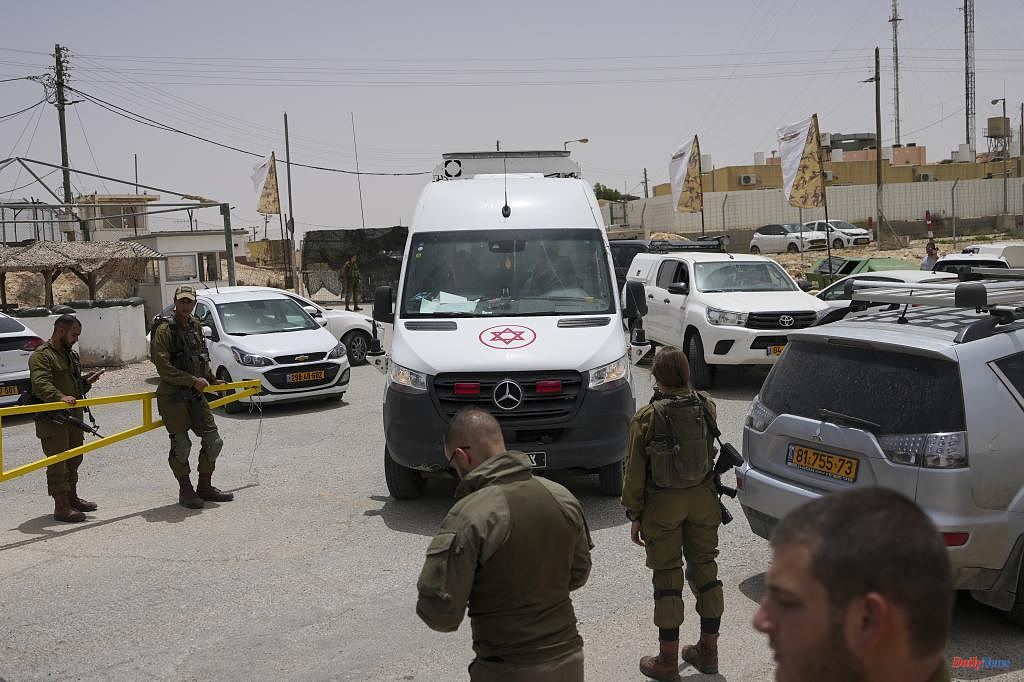Three Israeli soldiers died this Saturday in an armed attack that has broken the calm that reigns on the border between Israel and Egypt, only challenged in recent years by drug smuggling attempts. The attacker, who infiltrated Israeli territory and was wearing an Egyptian Border Police uniform, was killed.
Early in the morning, the police shot dead two young Israeli soldiers - a man and a woman - who were in a lookout position near Mount Harif in the Negev desert and were part of a mixed combat unit. from army. Hours later, Israeli soldiers sent to the area located the Egyptian who was armed with a Kalashnikov. "Our forces responded to his shooting and neutralized the terrorist in Israeli territory," the Army said after the exchange of fire in which one soldier was killed and another wounded.
The two countries, in close security coordination in the border area, are in permanent contact to establish a joint commission to clarify the most serious incident on the border in the last decade. "The assailant was an Egyptian policeman. The investigation is being carried out in full cooperation with the Egyptian Army," sources in Israel confirmed, noting that their forces continued to patrol the area to rule out the presence of other attackers.
According to the Egyptian military spokesman, one of his border guards pursued drug smugglers, crossed Israeli border control and was involved in the exchange of fire that killed him and the three Israeli soldiers. . In a statement released early in the afternoon, he indicated that he is taking "all necessary judicial measures" regarding the incident and indicated that he sends his condolences to the families of the victims. "The identity and motivation of the agent are not yet known.
"This is an incident related to security and we are investigating its circumstances," said Israeli military spokesman Daniel Hagari, when asked if it was related to the growing drug smuggling attempts, taking into account that, several hours before and about three kilometers away, his forces aborted a drug smuggling valued at one and a half million shekels (about 375,000 euros). The traffickers opened fire without causing casualties. With the passing of the hours, the belief in Israel is gaining strength that this case of smuggling, which is usually carried out by Bedouin gangs on both sides of the border, was not the main reason for the lethal attack.
"2022 was the most successful year in our defensive operations to prevent the entry of drugs from Egypt," the brigade officer in charge of patrolling a wide stretch of the border recently told us. And he added: "Despite the calm, we do not forget that a terrorist attack could occur at any moment, so we must be vigilant."
In the last 15 years, the security services of Israel and Egypt have cooperated closely in the fight against terrorism against jihadist groups, linked to Daesh (Islamic State), in the Egyptian Sinai that used to attack Egyptian forces and sometimes against Israel. On August 18, 2011, more than a dozen jihadists from the Sinai infiltrated Israel in a simultaneous attack by various commandos that killed eight Israelis (six civilians and two security personnel), five Egyptian soldiers and the most terrorists. Precisely to prevent this type of attack, the infiltration of immigrants and the smuggling of drugs and weapons, in 2014 Israel completed the construction of a five-meter-high fence, with sensors and cameras, along the 230-kilometer border with Sinai.
"Cooperation with the Egyptian Army on the ground is very good and close and we hope it will continue to be," Israeli military sources say after the attack that challenges mutual trust and calm on the border, tactical security coordination and bilateral relations. strategic. So far, Israel has not closed the Taba border crossing or asked the thousands of Israeli tourists to leave the Sinai. It is a very popular tourist destination among young people in Israel.
In 1979, Egypt became the first Arab country to sign a peace agreement with Israel, against which it had fought in the different wars since its independence in 1948. In exchange, it received back the Sinai, a huge and strategic territory that Israel it had occupied in the 1967 war. Jordan was the second Arab country to do so in 1994. It is no coincidence that the borders with Egypt and Jordan are the calmest in Israel. The Israeli-Palestinian conflict largely explains why peace remains a strategic alliance without actually translating into close and warm relations. The normalization of the relationship with Israel is still viewed negatively by broad sectors in Cairo.
Since the Israeli withdrawal from the Gaza Strip in 2005 and the takeover of its control by the Islamist group Hamas in 2007, Egypt has acted as the main mediator to stop the numerous escalations between Israel and Palestinian militias. The last time was in mid-May when he made a decisive contribution to stopping the confrontation between Israel and Islamic Jihad.
According to the criteria of The Trust Project












